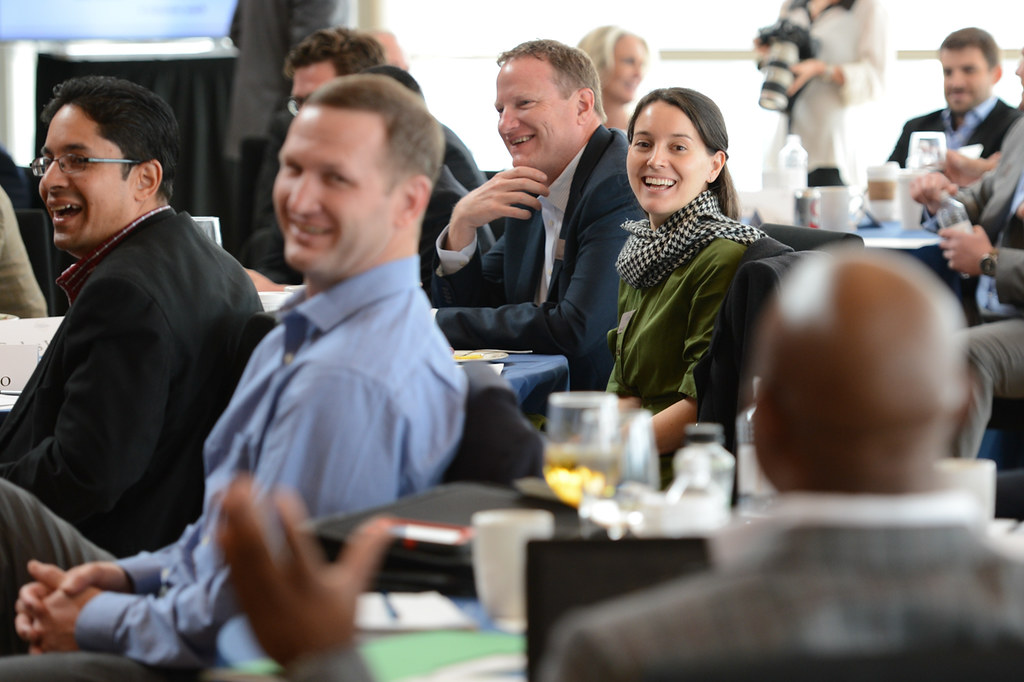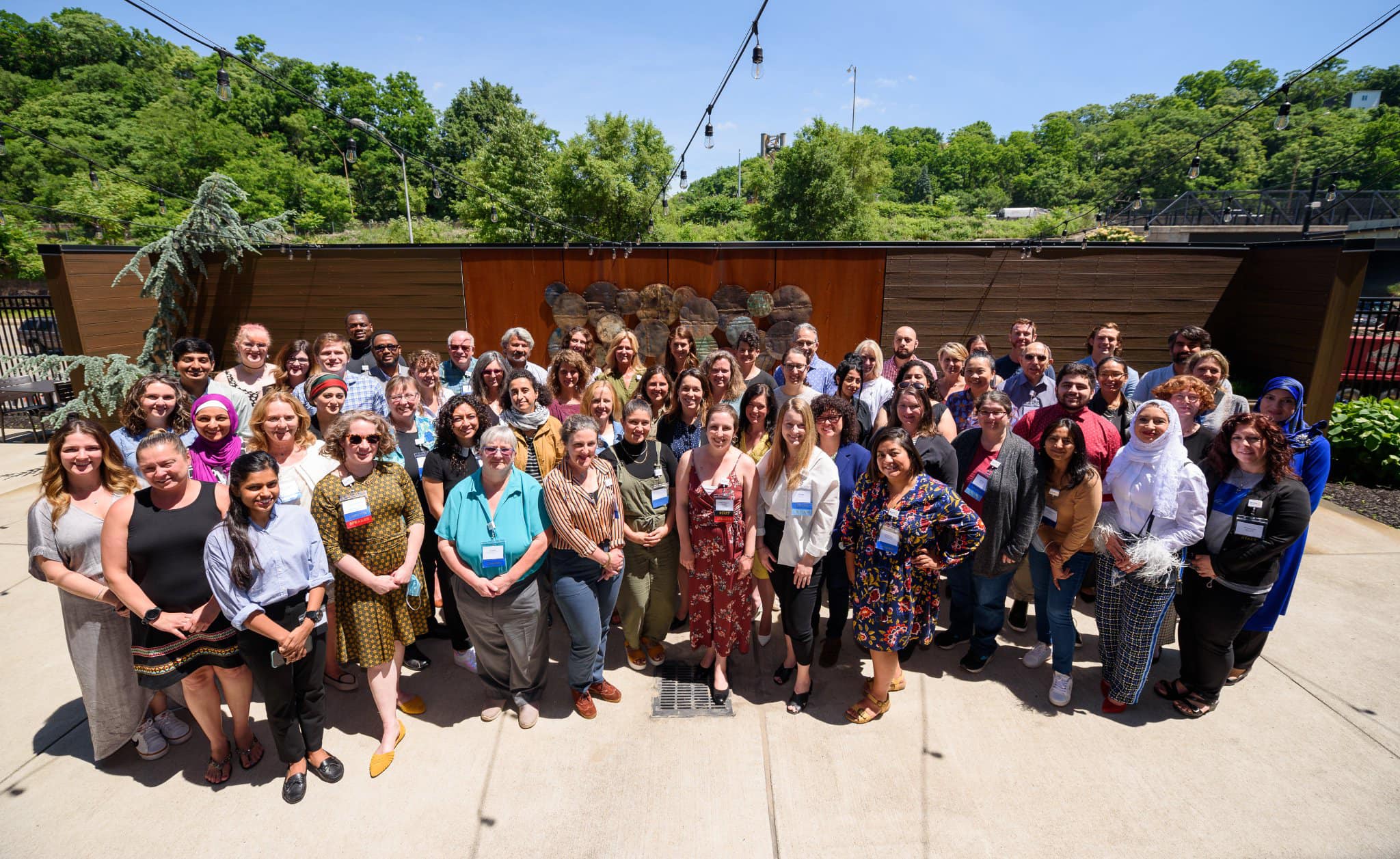Please tell us a little bit about yourself and your personal leadership project (PLP).
I am a scientist focused on the intersections of science, politics, and people. I began my career as a marine biologist, but working as a science fellow in Congress made me passionate to build my career improving communication between scientists, decision-makers, and the public.
In 2007, I co-founded a nonprofit, nonpartisan organization, “Science Debate,” in response to the near absence of science and technology topics in the presidential debates, speeches, and interviews. Our team included Republicans and Democrats, with board chairs from both parties who were scientists and current members of Congress. This organization became my PLP and initially the goal was simple: Engage presidential candidates on science policy issues prior to Election Day. Research demonstrates that when candidates address policy priorities along the campaign trail, they are more likely to follow through if elected and arrive in office with a plan. Between 2008 and 2020, every presidential candidate responded to a series of questions from Science Debate about their top science priorities ranging from mental health to space exploration.
Please give us an update on what you have been working on since completing the Presidential Leadership Scholars program.
I was named CEO of Science Debate the year prior to becoming a 2015 Presidential Leadership Scholar. My experience in the PLS program helped me expand Science Debate beyond national politics to include local and state races. Our team developed a large network of bipartisan chapters across the U.S., and we expanded our mission to include: 1) Elevating science policy issues in state- and districtwide races and 2) Empowering science policy advocates to become leaders in their communities and build coalitions. In 2022, I stepped away from that leadership role, and Science Debate – now known as “Science on the Ballot,” is now a central program within the National Science Policy Network.
Meanwhile, at Michigan State University, I work as a scientist focused on science, policy, and communication. I also host the PBS series Serving Up Science, which explores the science behind our favorite foods. Season four debuts in September. Finally, I will complete a Ph.D. in community sustainability this fall focused on scientific decision-making in Congress. My dissertation explores how senior congressional staffers in the House and Senate make decisions about science policy.
Which lessons learned during the Presidential Leadership Scholars program have stayed with you the most, and how have you put those lessons into action?
I learned so much as a Presidential Leadership Scholar, and the experience enabled me to be more effective as a leader. The significance of storytelling stands out as something I often think back upon and draw from in the work I continue to do. As a group, we discussed the aspects of what makes a narrative compelling. We practiced writing and sharing accounts of what drives and motivates each of us along our journeys. And I still remember many of the stories of my fellow Scholars. In my work today, I now consider myself a storyteller above any other description. In my current roles in academia and media, I often remember lessons about crafting an effective narrative framework.
Along the same lines, I would be remiss not to add that the experience of PLS alongside such a remarkable group of leaders, innovators, and trailblazers was transformative. I learned as much informally from each of them as I did through the modules. My cohort continues to inspire me.
You were recently awarded a regional Emmy by the National Academy of Television Arts and Sciences for your PBS series, Serving Up Science. What do you hope viewers take with them after watching?
Food is celebrated and loved in every culture. It brings families and communities together and shapes each of us on a personal level. And our choices and agricultural practices set the course for our collective future in terms of how we produce food and its impact on the environment.
Yet most of us are disengaged and misinformed about what we eat. In the U.S., half of Americans say they rarely or never consider where their food comes from or how it was produced.
Serving Up Science explores the science and history behind our global food system. The goal is to help cultivate a culture where more people recognize how what we eat influences our health and impacts our world.
Your current research focuses on how we make decisions about science and policy. Can you share what inspired this work?
While working as a legislative science fellow in the Senate, I met many impressive scientists visiting our congressional office. Unfortunately, many of the most accomplished were unable to translate their research in a meaningful way to those responsible for making decisions that impact our health, safety, and standing on the global stage. The experience inspired me to work toward improving communication and building trust between scientists, policymakers, and the public.
My first book, Unscientific America: How Scientific Illiteracy Threatens Our Future, co-authored with Chris Mooney, came out in 2009, exploring the growing disconnect between science and the American public. The body of research we collected revealed how often communication about critical topics broke down in ways that were deeply disturbing. Back then, we could not have imagined how much worse the situation would be today.
Now that I am back in academia, I have the chance to investigate questions that have been on my mind since working in Congress. I discovered that much has been written about the ways policymakers’ access and use scientific information, but there has been very little attention to the pivotal role of staffers in scientific policymaking. Given scientists have largely ignored the staffers significance, it should be no surprise that staffers, in turn, are frequently unaware of the role of science in their decisions.
As the global pandemic demonstrated, our political system is not adequately equipped to deal with serious science-related crises. Staffers need not become scientific experts, but the scientific establishment has largely focused on uncoordinated communication efforts. Instead, it’s vital for them to develop a more comprehensive understanding of the dynamics of policymaking on Capitol Hill. I am hopeful that my research-based contribution will help to promote science informed policies.
What issue at the intersection of science and policy should we be watching more closely?
Great question! There are so many. My role at Michigan State is largely focused on science, technology, and society, and a few of the topics I am paying closest attention to right now are the opportunities and challenges related to artificial intelligence, emerging transgenic technologies, the ongoing socioeconomic and environmental impacts of climate change, and Per- and polyfluoroalkyl substances also known as PFAS – the human-made “forever chemicals” scientists are just beginning to understand that now reside in our bodies, households, lands, and water. On each of these issues – and so many more – it will be vital to include science in the decision-making process.

